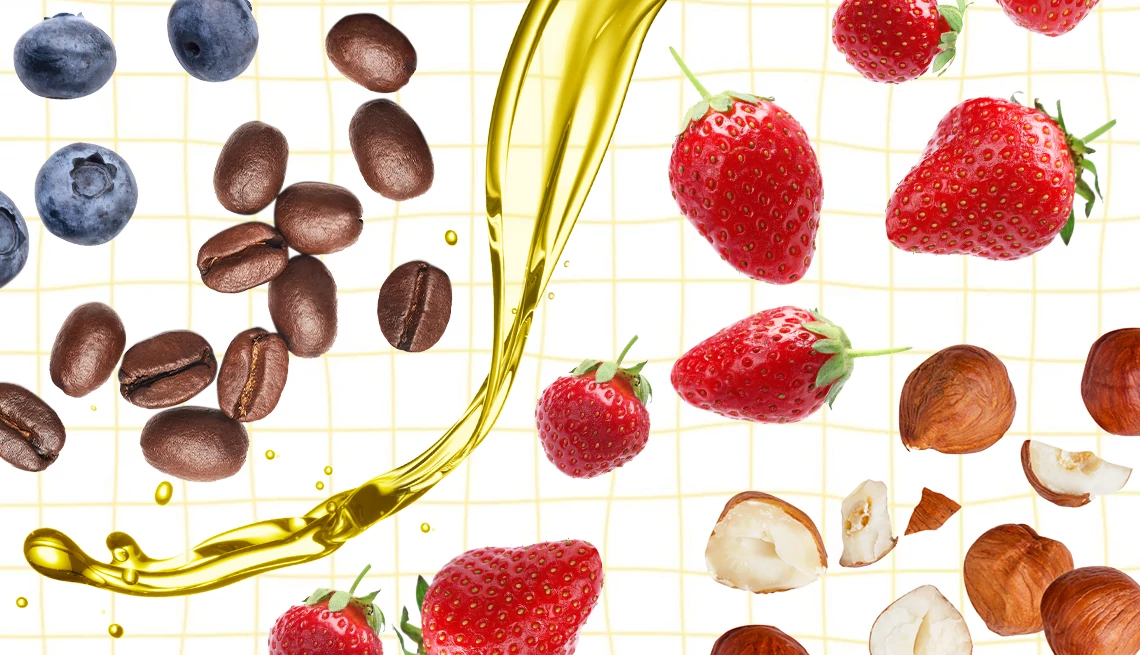
What Are Polyphenols? Food Sources and Benefits
- Select a language for the TTS:
- UK English Female
- UK English Male
- US English Female
- US English Male
- Australian Female
- Australian Male
- Language selected: (auto detect) - EN
Play all audios:

PROVIDES HEALTH BENEFITS Polyphenols can help with brain function and cognition. A systematic review published in _Frontiers in Nutrition_ found that eating polyphenols for moderate and long
periods may improve both working and episodic memory in middle-aged and older adults. One review published in the journal _Antioxidants_ in 2022 hypothesized that polyphenols such as
curcumin might help protect the brain by preventing the accumulation of the beta-amyloid plaques that are one of the hallmarks of Alzheimer’s disease. IMPROVES GUT HEALTH Many foods that
contain polyphenols also have fiber, which is important for regular bowel movements. "Polyphenols can help with digestion, and that can help us in the restroom," says Goodridge.
According to a study published in the _Journal of Food Biochemistry_ in 2022, the gut microbiome transformed polyphenols into bioactive compounds that could have "therapeutic
effects" on gut health. HELPS WITH HEART DISEASE Heart disease is the leading cause of death in the United States, according to the Centers for Disease Control and Prevention, with one
person dying every 33 seconds. "One of the challenging things with heart disease is the inside of our arteries over the years can get rigid [and] stiff," says Goodridge. Arteries
need to be elastic, yet oxidative stress can cause them to become rigid. "Polyphenols can be protective of heart health," Goodridge says. PREVENTS NEGATIVE EFFECTS OF CELL DEATH
Polyphenols can reduce cellular senescence. Cellular senescence occurs when cells die and accumulate in the body instead of leaving. They can leak harmful compounds, lead to inflammation and
contribute to other coronary diseases, says Dieras. "The number of cells that are in that stage accumulates as you get older," she says. POLYPHENOL-RICH FOODS Many fruits,
vegetables, nuts, herbs, spices and beverages, such as green tea and coffee, contain polyphenols. The quantities of polyphenols vary based on the food or beverage, freshness, processing, and
even the variety. Eating a healthy and varied diet helps ensure you're eating sufficient polyphenols. "You're probably getting these within your diet if you're eating a
diverse diet with fruits, vegetables, nuts and seeds," says Dieras. There are also polyphenols in olive oil, whole grains and legumes. Plus, you get the additional benefits of fiber and
vitamins when you eat these foods, she says. Brightly-colored fruits and vegetables, especially red-colored, are high in polyphenols, says Goodridge. Foods high in polyphenols include
cranberries, pomegranates, red grapes, and berries, such as strawberries, blueberries, raspberries, and vegetables, like tomatoes, carrots, potatoes, and onions, she says. (See box.) Eat a
rainbow of colors for adequate nutrition throughout the week, says Goodridge. "All the different colors help the body in different ways," she says. "Color is mother
nature's way of saying, 'I'm really good for you, whether that's a different polyphenol or a vitamin.'"
